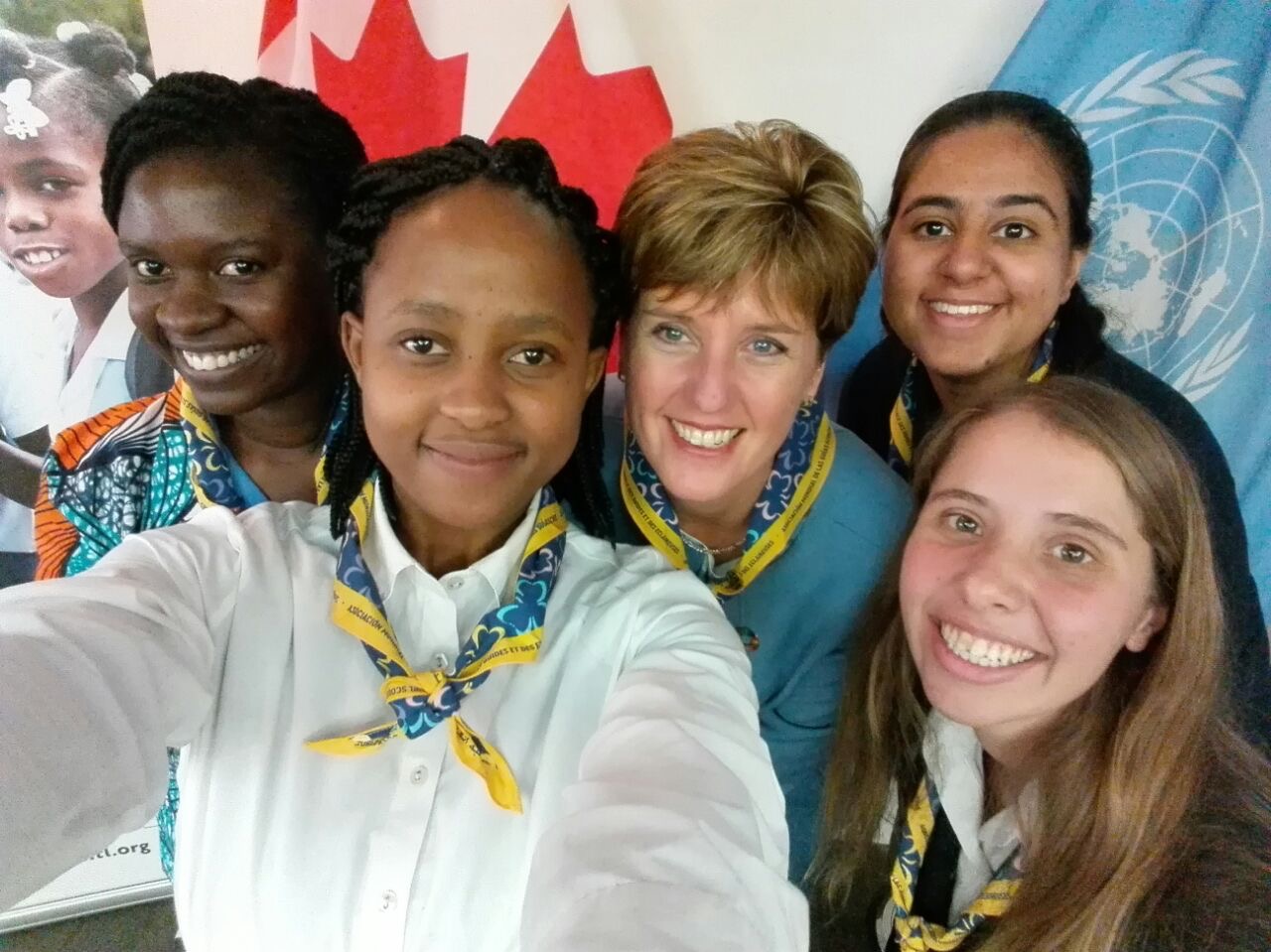Field Story
Ten must see global nutrition stories from 2023
December 18, 2023
WAGGGS, Nutrition International and Canada partner to improve girls’ nutrition and help every girl reach their potential
WAGGGS, Nutrition International and Global Affairs Canada launched a partnership to ensure that no girl is held back by poor nutrition – no matter where she is from.
Posted on March 12, 2018


New York City, USA— Lower social status, poverty, reproductive biology, and lack of access to education mean that adolescent girls are more likely to suffer from nutritional deficiencies than boys.
Today, the World Association of Girl Guides and Girl Scouts (WAGGGS), Nutrition International and Global Affairs Canada launched a WAGGGS-Nutrition International partnership that will work to ensure no girl is held back by poor nutrition – no matter where she is from.
Through engaging and practical activities, Girl Guides and Girl Scouts between the ages 6 and 19 will learn about the importance of eating the right quality, the right variety, and the right amount of food, in Bangladesh, Madagascar, Philippines, Sri Lanka and Tanzania.
These five countries were chosen because of their high rates of adolescent malnutrition, which can impede girls’ physical development and affect their school performance.
As well as developing educational activities, the partnership will support girls to drive change in their communities and to speak out about the health and nutrition issues that matter where they live.
Social norms, traditions and disparities in household work all increase girls’ chances of being malnourished.
Together with other Girl Guide and Girl Scout representative in attendance at the launch, Helga, 27, a Girl Guide volunteer and Medical Doctor in Tanzania, shared how traditional beliefs lead to poor nutrition for girls in her country.
“Some tribes in Tanzania have many harmful customs. Girls and women are often not allowed to eat certain food. Pregnant women are not allowed to eat eggs. Sometimes they are told not to eat certain parts of the chicken. Many families grow vegetables for sale, but rarely leave a portion for the family. They are all sold or only eaten by the father and boys of the family.”
Launched on the sidelines of the 62nd Commission on the Status of Women (CSW62) in New York City, this partnership will help to tackle the gender-specific impact of poor nutrition. It will challenge harmful practices and start important conversations about girls’ nutrition.
“Girl Guides have a tradition of speaking out for change. Nutrition in adolescent girls is a vital topic that needs to be highlighted. I want girls to know that we are equal. We need to agree that certain beliefs and traditions that undermine women should be completely eliminated,” said Helga.
This project was made possible through a $CAN 2.1M dollar investment from the Government of Canada, and is supported by Nutrition Leverage and Influence for Transformation (NLIFT), an innovative initiative led by Nutrition International. The initiative leverages matching contributions from WAGGGS.
“During my missions abroad, I had the opportunity to meet with women and girls that have experienced the effects of poor nutrition and its negative impact on their ability to succeed,” said Marie-Claude Bibeau, Canada’s Minister for International Development and La Francophonie. “Partnerships like this are a great example of the type of efforts our Feminist International Assistance Policy is supporting to empower girls to lead on efforts to improve nutrition in ways that are meaningful to them and their communities.”
“Girls are not only disproportionately affected by malnutrition but also hold the key to ending it. This new partnership will bring together the drive, determination, and reach of the Girl Guides and Girl Scouts, and the capability and expertise of Nutrition International to create a movement of young nutrition leaders who will challenge the status quo,” said Joel Spicer, President and CEO of Nutrition International.
While the nutrition program is being piloted in five countries, it is hoped to be scaled up and to potentially reach all 10 million Girl Guides and Girl Scouts worldwide.